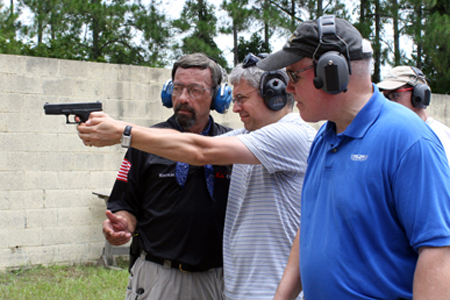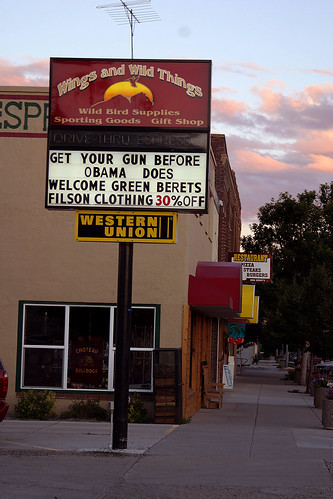What follows is a coda to my prior review, The Sleek Black Glock and the American Dream. While this can be read as a freestanding essay, the two are meant as an integrated unit.
Buried deep in a late chapter of his new book, Glock: The Rise of America's Gun, journalist Paul M. Barrett describes participating in a shooting competition with award-winning firearms writer Massad Ayoob and his girlfriend, Gail Pepin. Ayoob and Pepin both carry loaded weapons everywhere they go. They consider bearing arms both a patriotic duty and a self-defense imperative:
“Like many gun owners who carry, they find last night’s local television news report of an armed robbery at the neighborhood 7-11 more compelling than the statistically small chance of being the unlucky customer paying for a Slurpee when a bad guy attacks.”
Barrett’s wording may sit poorly with avid gun rights activists. One early Amazon reviewer says this passage “makes Ayoob look silly.” Yet it reflects an important reality for many of America’s most outspoken gun owners today: Our world is dangerous, our fears are justified, and we have a God-given right to protect ourselves from the monsters who lurk just beyond the limits of our peripheral vision.
Trophy shooter and lifelong NRA member Michael Moore made this same point about fear in his film Bowling for Columbine. Other countries have a love affair with weapons similar to ours. Canada has a thriving sport shooting culture, but a violent crime rate closer to Australia, whose restrictive gun laws essentially make private sidearms illegal. But Canada does not foster fear in its populace, either.
 |
| Paul Barrett (center) learns combat shooting with coaches Massad Ayoob (in black) and Herman Gunter (in blue) |
Yet many people who will never need 9mm stopping power or a seventeen round magazine still want the Glock because they see it as necessary in today’s violent culture. The shooting competition Barrett attends features five scenarios, two of which he describes: a mad shooter in a mall, and a workplace stickup. Both are rare to the point of statistical insignificance, yet organizers and participants see these as realistic representations of modern life.
Gun control activists seize this fear. They assert that we are more likely to be injured by our own weapons than the bugbears we fear (though this is much less true now than just a few years ago). In the wake of the late-nineties school shootings, they advocated a prison-style lockdown mentality in America’s schools, until 2001, when the real threat proved to come from grown-ups with box cutters.
Instead of allaying fear, gun control activists amplify it. Barrett cites book titles like Every Handgun Is Aimed at You, backed with speeches and position papers portraying American cities as shooting ranges. These techniques tend to backfire, as gun owners respond to gun control campaigns by stockpiling weapons. America now has roughly one private firearm per adult citizen.
Gun control activists gin up fear of mishandled weapons and casual terrorism. Gun rights activists gin up fear of jackboots wanting to suspend the Bill of Rights. Yet violent crime in America has decreased as gun ownership has increased. And NRA alarmism notwithstanding, President Obama shows no interest in banning handguns. Both sides use fear to manipulate us.
 Firearms are tools. Like power saws, they are useful in the hands of skilled workers who treat them respectfully, and dangerous in the hands of novices who mishandle them. Likewise, police officers are generally good people sworn to uphold the rule of law. Some may have totalitarian aspirations, but an engaged citizenry can hold such a minority to account. Both of these fears are misguided.
Firearms are tools. Like power saws, they are useful in the hands of skilled workers who treat them respectfully, and dangerous in the hands of novices who mishandle them. Likewise, police officers are generally good people sworn to uphold the rule of law. Some may have totalitarian aspirations, but an engaged citizenry can hold such a minority to account. Both of these fears are misguided.Sociologist Barry Glassner, in The Culture of Fear, describes America’s various paranoias. Monolithic media-generated fears leave us feeling powerless before ordinary challenges. Like Barrett, Glassner doesn’t take this as far as it could go. If regular Americans feel helpless in daily life, we inevitably relinquish control to activists, advertisers, and others who would sell us security in exchange for our democratic freedoms.
America does not need gun control; America needs fear control. We must cross our arms and rebuke anyone who would breed fear for political advantage, like various activists, or for profit, like the media. Because fear is a precursor to helplessness, fearmongers eventually want us to depend on them. Anyone who wants you and me to fear more does not have our best interests at heart.

No comments:
Post a Comment